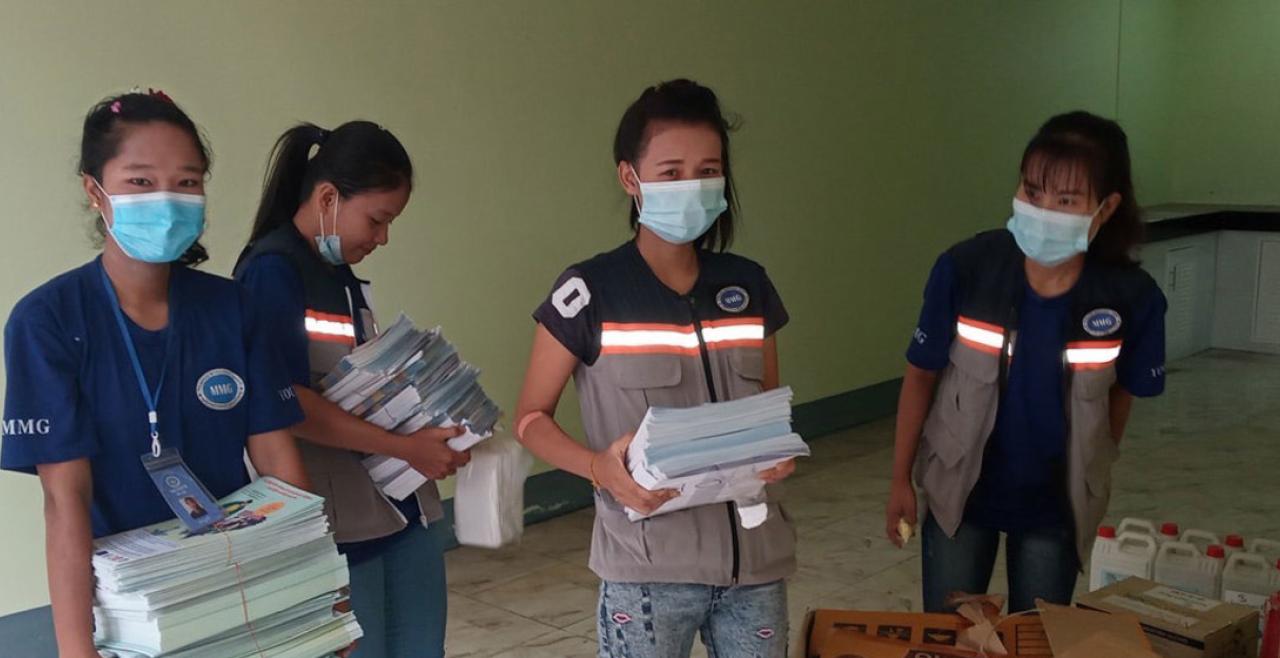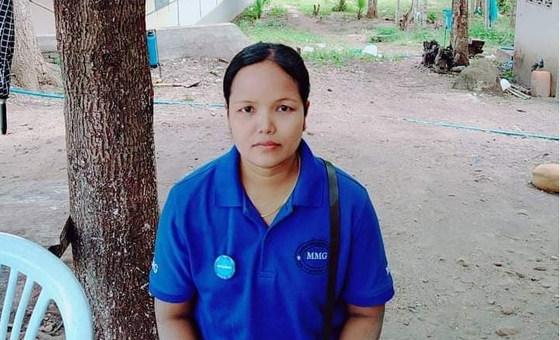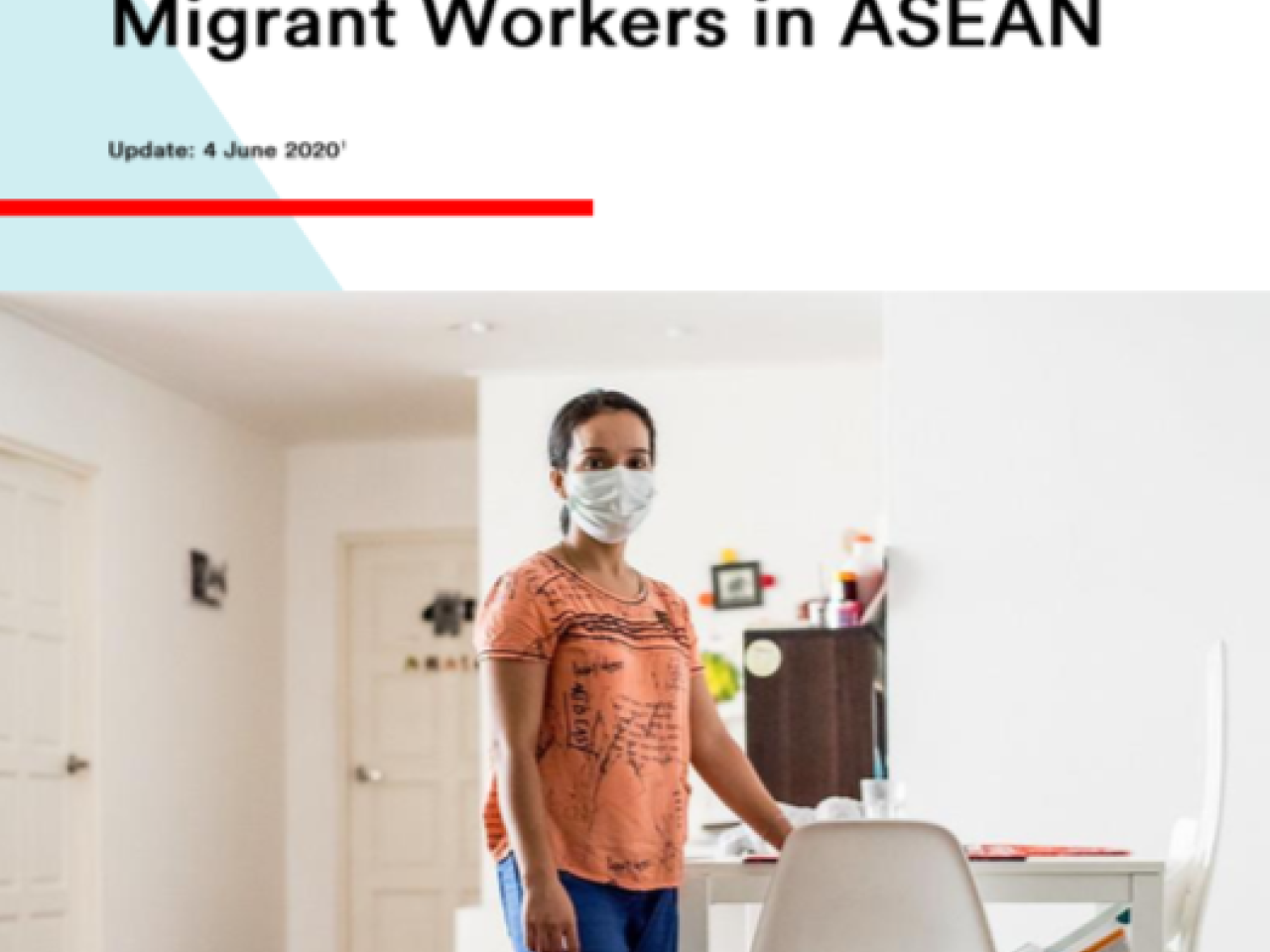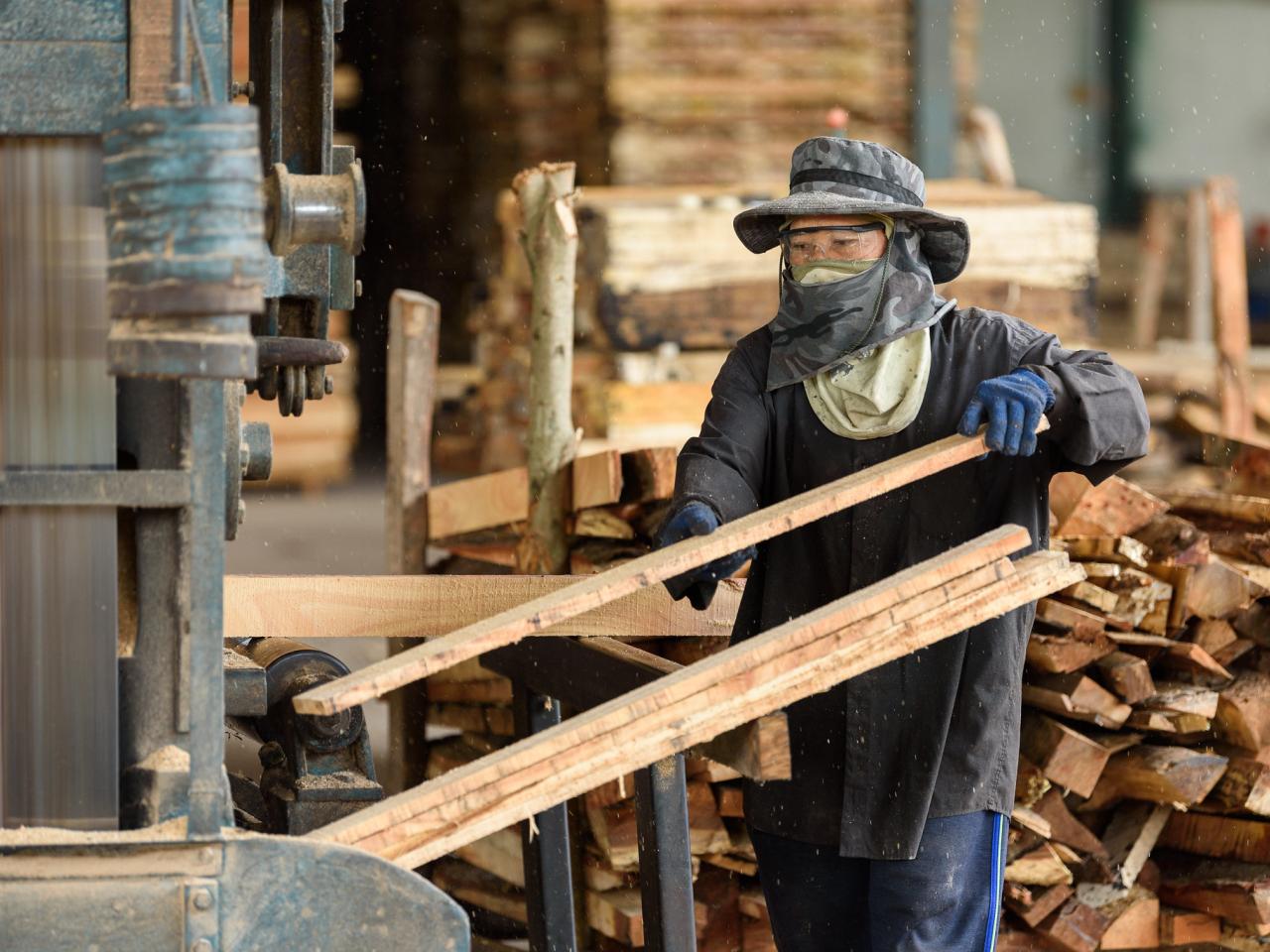Supporting migrant women on the COVID-19 front line in Myanmar

MYAWADDY, Myanmar - One of the far-reaching effects of the global lockdown brought on by the COVID-19 pandemic has been the return of migrant workers to their home countries. The UN is assisting the authorities in Myanmar in facilitating this homeward migration, with a focus on providing for the needs of women.
With a high number of workers overseas, Myanmar has been preparing for the return of hundreds of thousands of workers – some 650,000 are in Thailand alone – and one of the key tasks was to set up quarantine facilities for those returning migrants and carry out awareness raising on COVID-19 health messaging and prevention of gender-based violence – a key concern among the women migrant returnees.
Sandi Swe, who has been working in a quarantine facility since March 2020, shares her experience.
"April should have been a month of festivities, celebrating Thingyan – the Burmese New Year – but this year has been unlike any other, because of the measures Myanmar has taken to curb COVID-19. As the news of the global pandemic spread, Myanmar’s migrant workers began to return home, and the country has prepared for mass returns by providing safe quarantine facilities.
"Many were established in the border town of Myawaddy, in Kayin State; men and women sheltered in different facilities, and I volunteered to support women migrant returnees.
"I work for a local Myawaddy-based organization, Migrant Monitoring Group (MMG) and, before the pandemic, I had provided awareness-raising training to migrants. I decided to volunteer, even though I was worried, because it didn’t feel right to let fear get in the way. It was simple: everyone needed help, and I could provide that help.
"I started working in the quarantine facility in March and at the beginning, I admit, I took this pandemic very lightly. But day by day, month by month, it is still here. The protective measures are becoming part of our daily routine and we can’t even guess when it will be over.
"The number of migrants decreased significantly in the last few months, so aside from cleaning the facilities, we were not that busy and I thought this pandemic was almost over: until now, that is. The rate of return is increasing again, and 100 to 200 migrants are arriving every day.
"Migrant women have often experienced family arguments and domestic violence. COVID-19 has made the situation even worse.
"Even though this situation has had negative impacts on everybody, migrants are one of the most vulnerable groups, especially those who have undocumented status in their destination countries. They are not able to do anything [about exploitation or violence] because they avoid the police, anxious about getting arrested because of their undocumented status."
"In a nutshell, the future of returnee migrant women is not predictable and they have lost confidence and energy.
"This job has allowed me to understand the migrants at a deeper level, the challenges they face, their anxieties about the present and the future. I believe I understand their situation more clearly and I certainly feel empathy for them. I want to support these people.
"It feels good when they ask me for my help, when people need me, especially since I know I can be of assistance and make a difference."
Spotlight Initiative has been supporting UN Women, International Labour Organization (ILO), Women’s Organization Network (WON) and the authorities in Myanmar to prevent and respond to violence experienced by migrant women through the Safe and Fair programme.
Original article from UN News, with additional reporting by Pichit Phromkade.




